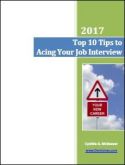 |
||
Your College Student Resume - Do's and Don'tsA college student resume or entry level resume is going to differ a bit from a resume used by a seasoned professional. College student resumes often lack substance. It's not uncommon to find a listing of every academic course taken, with a smattering of clubs and activities added for good measure. We're going to change that format to create an entry level resume that will actually get noticed.  The sections of your resume are going to be the same as a more seasoned professional, but we'll be mixing up the order a bit to highlight things that are important at this early stage of your career. Your resume will include: Contact Information
Summary Statement Academic Background Experience Organizations Let's look at each section of your college student resume in detail. Contact InformationInclude your name, address, phone number, and email address at the top of your student resume. If your email address is cute or in poor taste, get a free gmail account for job search purposes. Go with an email address that is straight forward and professional. For example, yourname@gmail.com would work well. Although this is off point in terms of your college student resume, make sure that the voice mail message on your cell phone is appropriate for your job search. You don't want a prospective employer being greeted by ear splitting rap music! Likewise, scrub your Facebook and Twitter accounts for anything that might derail your job search. Employers are checking out social media sites in the hiring process. If you have party photos posted - you know the kind I mean - make sure that you take them down. Summary StatementObjective statements are no longer in vogue on resumes. Instead, you'll want to create a summary statement that highlights your key strengths. This will be your "elevator pitch" - a short narrative (3-5 sentences) about what you have to offer a prospective employer. Think about how others describe you - leader, team player, smart, creative, detail oriented, organized...these are all good ways to describe what you might bring to your work environment. You should actually write this Summary Statement after you have finished writing your resume. You'll be able to pull some good ideas from the work you'll be doing to put your college student resume together. Academic Credentials At this stage, one of the key things you'll want to highlight on your entry level resume is your academic background. If you're in college, this section should list your college ONLY. There is no need to pull your high school into the picture. If you're in college, we know that you finished high school! Express your academic experience as follows: Wake Forest University, Winston-Salem, NC If you have already graduated, you should indicate the degree conferred along with your major. For example: Temple University, Philadelphia, PA Should you include your GPA? The honest answer is, it depends. If your GPA is over 3.5 (on a 4.0 scale), then it's OK to include it. If your GPA is lower than 3.5, you're better off being silent on this issue. While your family may be proud of your 3.2, this will not immediately impress an employer. If your school uses a scale other than 4.0, be sure to make a note of it. In this section of your college student resume, you will also want to include any academic honors or awards you received during your college years. ExperienceThis is a tough section to write when you are a student, or just beginning your career. You've probably had some summer jobs - as a waitress, lifeguard, or something similar. Maybe you've been fortunate to have an internship with a company related to your career goals. It's also important to remember that volunteer experience counts for this section of your college student resume. Think about the leadership positions you've held in school organizations. Have you run some fundraisers for a local charity? In one of the first workshops I did for the Union League, a young lady was struggling with this section. It seems that she hadn't done anything - except organize a very large concert to raise money for a local food bank. She put a committee together, secured the venue for the concert, arranged seating, sold sponsorships - the list goes on. So, think about the experiences you've had, even if they don't immediately seem relevant. Structure this section in the following categories:
You will want to list the organization you worked for, the dates of your service, and a brief description of your responsibilities. In general, each experience should include a short bullet point list of accomplishments. Just one cautionary note. If you have experience as a waiter, babysitter or similar line of work, there's no need to elaborate, unless there was something extraordinary about your role. OrganizationsI've met a number of incredibly accomplished recent grads who can list participation in several organizations among their achievements. Just like a college admissions application, quality trumps quantity. I would rather see a select list (and you can position your list like this) of organizations you've been active in. If possible, include organizations where you've held a leadership position, followed by organizations that you have truly been active in. If you joined the Spanish Club but attended only one meeting, don't feel compelled to list it. An interviewer might review this list and ask a probing question or two! In general, it's best to remain neutral from a political and religious perspective. Membership in these groups may inadvertently bias an interviewer. If you have other choices, use them. More information on many of these sections is provided throughout the DerrJones website. Check out these pages: |
|
|
|
[?] SUBSCRIBE
|
||
About Us | Contact Us |
Privacy Policy |
||





